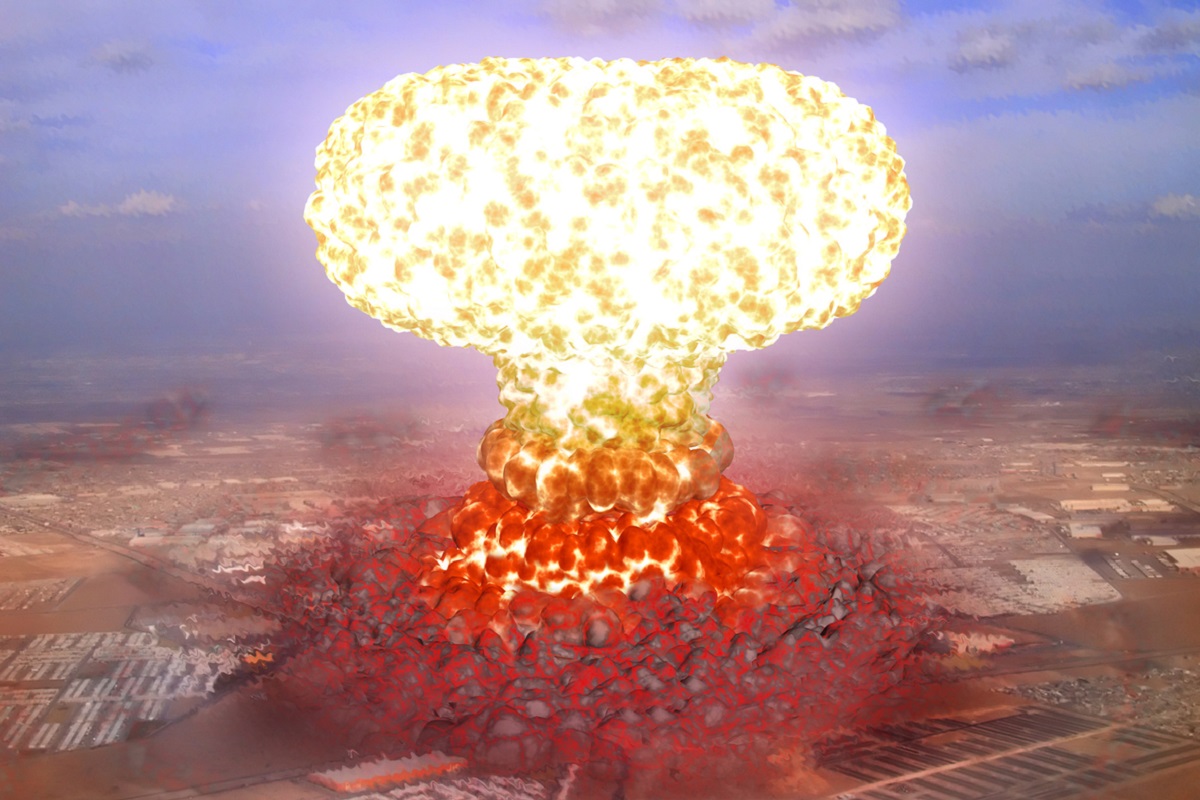Defeat paves the way for the future; INDIA bloc to grow stronger: Akhilesh Yadav
Samajwadi Party (SP) president Akhilesh Yadav has asserted that the INDIA bloc is strong and will become even stronger in the future.
A war between India and Pakistan, involving a hundred atomic bombs like the kind dropped in Hiroshima, could send five million tons of dust into the atmosphere, shrink the ozone layer by as much as fifty per cent, drop worldwide temperatures to their lowest point in a thousand years, create worldwide famines and cause more than a billion casualties.

Eric Schlosser, a widely acclaimed writer on nuclear weapons, has spoken at length to top officials and commanders at various stages of planning and control of nuclear weapons. In addition he has close contacts with peace movements struggling for a world free from nuclear weapons. He has written that these persons share a strong and sincere desire to avoid use of nuclear weapons.
The reason why both these sections share this strong belief is that both groups are well-informed about what actual use of nuclear weapons means. This makes them tremble at the implications.
Advertisement
In the specific context of India and Pakistan, the two nuclear weapon countries of South Asia, Schlosser has written, “The latest studies suggest that a relatively small nuclear exchange (relative to the total number of nuclear weapons that exist in the world) would have long-term effects across the globe. A war between India and Pakistan, involving a hundred atomic bombs like the kind dropped in Hiroshima, could send five million tons of dust into the atmosphere, shrink the ozone layer by as much as fifty per cent, drop worldwide temperatures to their lowest point in a thousand years, create worldwide famines and cause more than a billion casualties.”
Advertisement
Thus, it is clear that apart from killing millions of people immediately, exchange of nuclear weapons can lead to an unprecedented environmental catastrophe which can kill an even larger number of people while also destroying other life-forms like never before. If the nuclear weapon exchange is between two countries, people of neighboring countries will also suffer serious consequences without being involved in any dispute.
Some strategists have argued that there can be a less catastrophic role for nuclear weapons in the form of tactical weapons. As not just peace movements but several independent experts have pointed out, this is a flawed and mistaken view. A nuclear war started with tactical weapons can easily spill into a full-blown nuclear war if the opposing side also has nuclear weapons. Secondly, use of even tactical nuclear weapons can be very destructive, even for the country using them.
Pakistan, in particular, has been keen to develop tactical nuclear weapons in recent times as it feels that this can be one way of checking and defeating an invasion by a country with superior conventional war capability and bigger economic resources. However saner scientific voices within that country have warned that if Pakistan uses tactical weapons against an invading army on its land, its own military and civilian losses can be very high due to the highly destructive impacts of these weapons.
In the days of the cold war, NATO had stocked a lot of tactical nuclear weapons in West Germany to check a possible Soviet invasion. A war game, Carte Blanche, was played out to see the possible impacts in case of a Soviet invasion. It was realised only then that German civilian deaths from the use of tactical nuclear weapons on its own land could be higher than total German civilian deaths in World War II. Such is the destructive power of these weapons.
Moreover, when tactical nuclear weapons have to be prepared for use then control has to be dispersed and scattered. This increases the possibility that persons with fanatic or fundamentalist leanings can also gain access to this control. Hence the possibilities of terrorists gaining access to such control also increases at least to some extent. It is therefore not proper to nurse the false hope that tactical weapons provide some form of safer nuclear weapons. Such a delusion can be catastrophic for millions and millions of people.
Let us face the reality. All evidence points to the fact that nuclear weapons should never be used. In fact even accidental use of nuclear weapons or accidents relating to nuclear weapons can be very destructive. Hence ultimately the only safe option if we care for life on earth is to give up all nuclear weapons and all weapons of mass destruction once and for all. The more you study and explore this issue, no matter which side you belong to, the only honest conclusion can be that tomorrow if not today we have to do away with nuclear weapons if we want to save life on earth; so why not make a beginning today itself.
The discussion here has been in the context of South Asia, but of course the consequences of an exchange of nuclear weapons between the USA and Russia or between the USA and China will be much more devastating for the world as these countries have more weapons and their destructive capacity is higher. As a part of world, South Asia will also suffer very harmful impacts from this. Hence the only safe future for us and for our children is on the path which is entirely free from nuclear weapons and entirely free of all weapons of mass destruction.
(The writer is a long-time campaigner on survival issues. His latest book is Planet in Peril, published by Vitasta, Delhi)
Advertisement